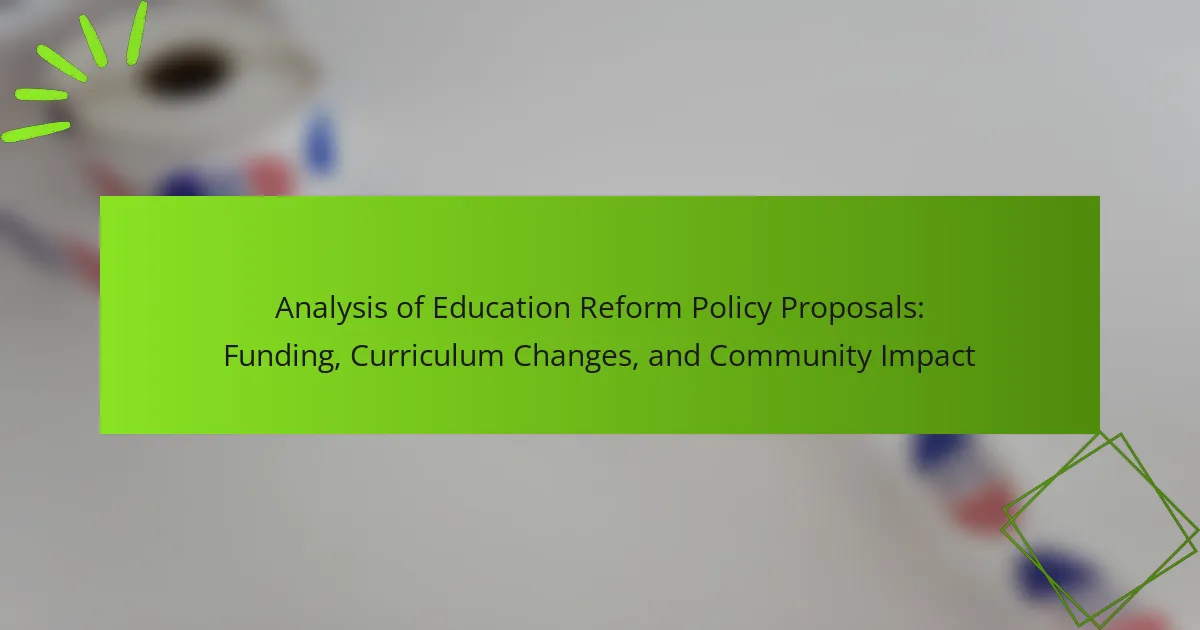Education reform policy proposals focus on three key components: funding allocation, curriculum development, and community engagement. Effective funding allocation aims to ensure equitable resource distribution to underfunded schools, while curriculum development seeks to enhance educational standards and incorporate technology to meet modern demands. Community engagement fosters collaboration between schools and local organizations, which has been […]

The role of grassroots fundraising in US political campaigns
Grassroots fundraising is a significant component of political campaigns in the United States, characterized by small donations from a large number of supporters. This funding model allows candidates to cultivate broad financial backing, reflecting their popularity and community involvement. The 2020 election cycle highlighted this trend, with over 50% of donations to Democratic candidates originating […]

Media Influence on US Political Campaigns: Key Strategies, Platforms, and Voter Engagement
The article examines the influence of media on US political campaigns, highlighting key strategies, platforms, and voter engagement techniques. It details how candidates utilize various media channels, including traditional news outlets and social media, to communicate their messages and shape public perception. The article discusses the impact of targeted advertising and social media interactions on […]
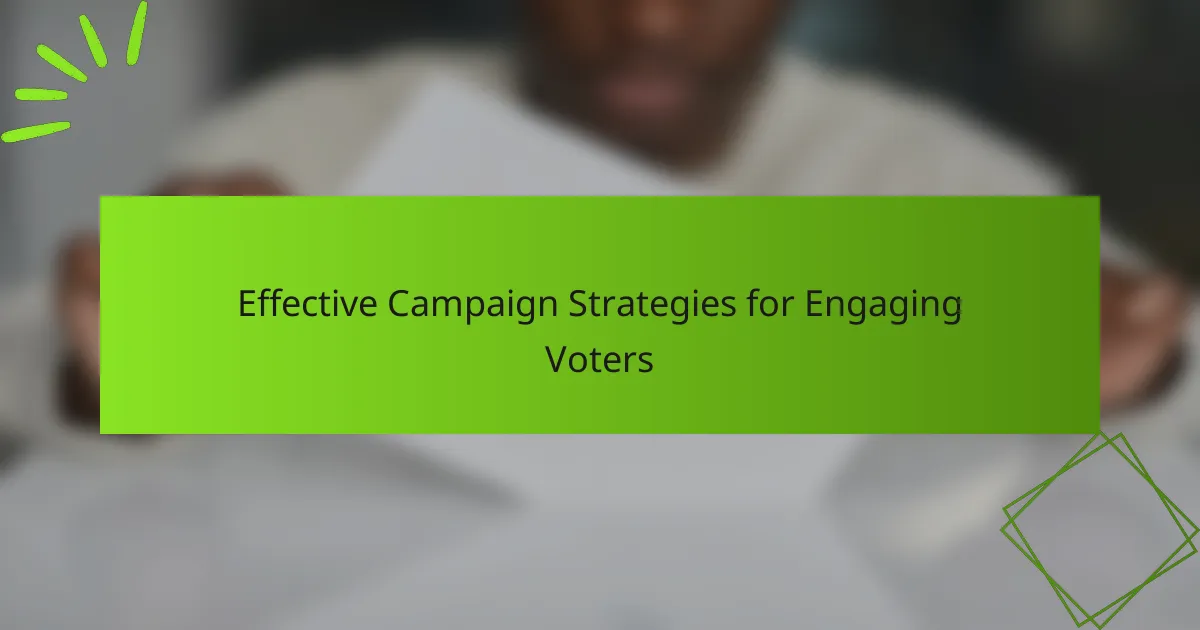
Effective Campaign Strategies for Engaging Voters
Effective campaign strategies for engaging voters encompass targeted messaging, grassroots mobilization, and leveraging social media. Targeted messaging involves creating tailored communications that resonate with specific voter demographics, enhancing engagement by up to 30%. Grassroots mobilization emphasizes building local networks to foster community involvement, with door-to-door canvassing increasing turnout by 10%. Social media serves as a […]

The Effect of Misinformation on US Political Campaigns: Sources, Consequences, and Mitigation Strategies
Misinformation is a significant disruptor of US political campaigns, impacting public perceptions and voter behavior. The spread of false narratives can undermine trust in candidates and institutions, with studies indicating that misinformation influences election outcomes by swaying undecided voters. Strategies to combat misinformation include fact-checking initiatives from organizations like FactCheck.org and PolitiFact, promoting media literacy, […]
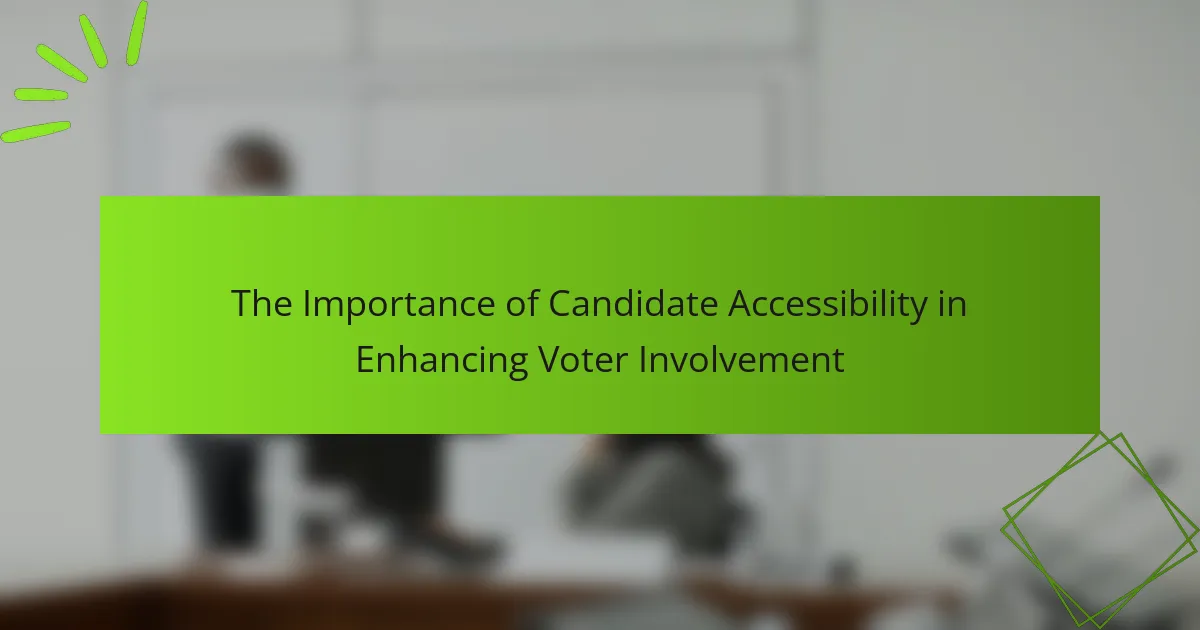
The Importance of Candidate Accessibility in Enhancing Voter Involvement
Candidate accessibility plays a vital role in enhancing voter involvement by allowing direct engagement between voters and candidates. This interaction fosters trust and transparency, enabling candidates to better understand voter concerns, which leads to more relevant policy proposals. Research indicates that increased candidate accessibility is associated with higher voter turnout, with a 2020 Pew Research […]
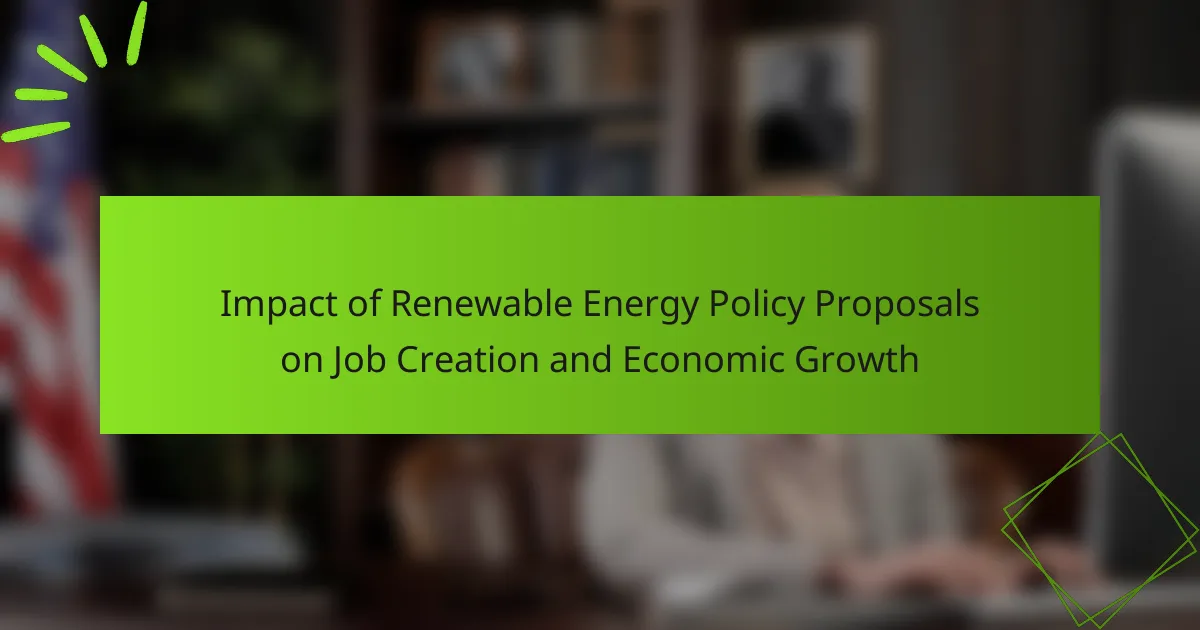
Impact of Renewable Energy Policy Proposals on Job Creation and Economic Growth
Renewable energy policy proposals play a crucial role in shaping job creation and driving economic growth. These policies facilitate increased investments in renewable technologies, resulting in a significant number of jobs, as evidenced by the International Renewable Energy Agency’s report of over 11 million jobs in the sector worldwide in 2018. Studies indicate that solar […]
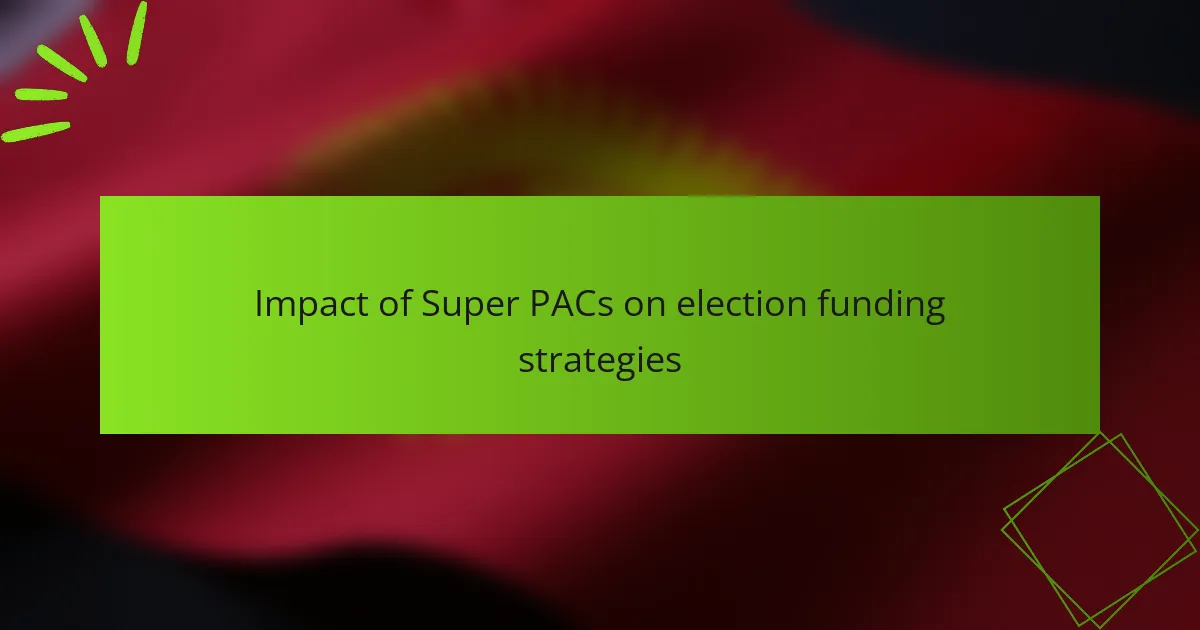
Impact of Super PACs on election funding strategies
Super PACs, or Political Action Committees, are organizations that can raise and spend unlimited funds to influence political candidates without direct coordination with their campaigns. Established after the 2010 Supreme Court ruling in Citizens United v. FEC, Super PACs play a crucial role in election funding strategies, significantly impacting voter perceptions through extensive advertising and […]

Republican Party’s Core Ideologies and Electoral Strategies
The Republican Party is characterized by core ideologies that include limited government, individual liberties, free-market capitalism, and traditional values. These ideologies influence the party’s policies and electoral strategies, which encompass grassroots mobilization, demographic targeting, and digital campaigning. The intersection of these core beliefs with electoral tactics shapes voter engagement and campaign messaging, particularly on issues […]
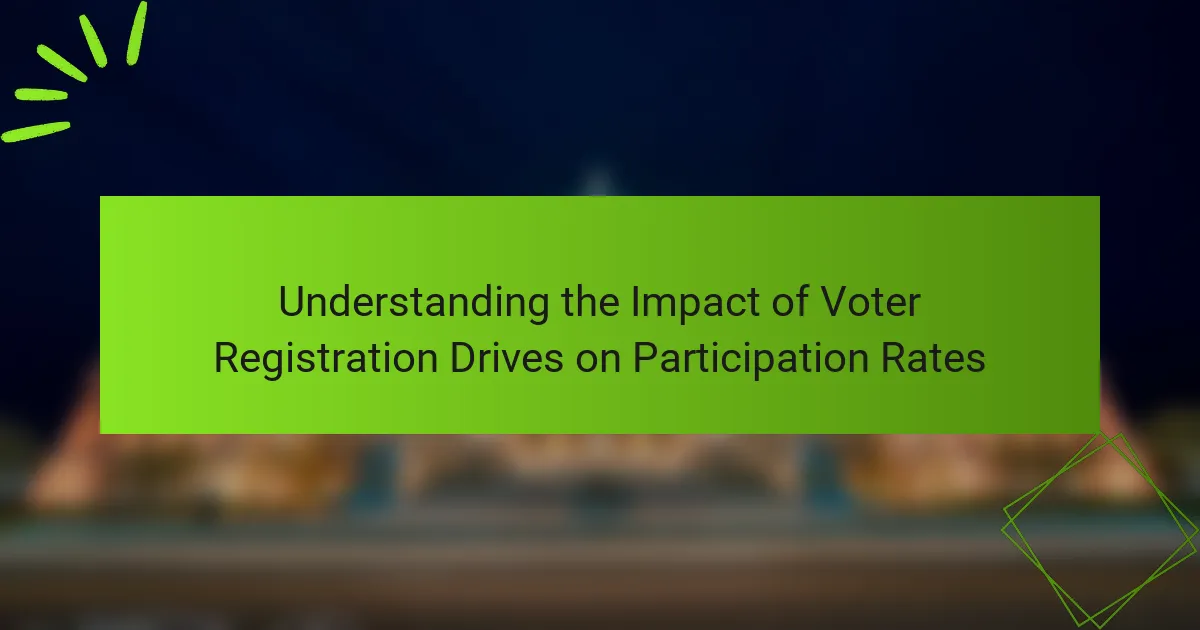
Understanding the Impact of Voter Registration Drives on Participation Rates
Voter registration drives are organized initiatives designed to encourage individuals to register to vote, often conducted by non-profit organizations and government agencies in various settings. These drives aim to simplify the registration process and increase voter participation, particularly in underrepresented communities. Research indicates that areas with active voter registration efforts experience significantly higher turnout rates, […]
